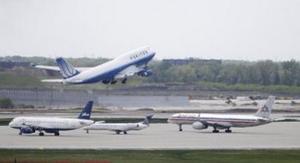Aviation securityFAA lost track of one-third of the 357,000 private aircraft in U.S.
The Federal Aviation Administration (FAA) is missing key information on who owns one-third — or 119,000 — of the 357,000 private and commercial aircraft in the United States — a gap the agency fears could be exploited by terrorists and drug traffickers; next year, the FAA will begin canceling the registration certificates of all 357,000 aircraft and require owners to register anew

Ownership of a third of aircraft unknown by FAA // Source: thirdage.com
The Federal Aviation Administration (FAA) is missing key information on who owns one-third of the 357,000 private and commercial aircraft in the United States — a gap the agency fears could be exploited by terrorists and drug traffickers.
The records are in such disarray that the FAA says it is worried that criminals could buy planes without the government’s knowledge, or use the registration numbers of other aircraft to evade new computer systems designed to track suspicious flights. It has ordered all aircraft owners to re-register their planes in an effort to clean up its files.
About 119,000 of the aircraft on the U.S. registry have “questionable registration” because of missing forms, invalid addresses, unreported sales or other paperwork problems, according to the FAA. In many cases, the FAA cannot say who owns a plane or even whether it is still flying or has been junked.
Fox News reports that already there have been cases of drug traffickers using phony U.S. registration numbers, as well as instances of mistaken identity in which police raided the wrong plane because of faulty record-keeping.
Next year, the FAA will begin canceling the registration certificates of all 357,000 aircraft and require owners to register anew, a move that is causing grumbling among airlines, banks and leasing companies. Notices went out to the first batch of aircraft owners last month.
“We have identified some potential risk areas, but I think we’re trying to eliminate as much risk as possible through the re-registration process,” said FAA spokeswoman Laura Brown.
The FAA says security is not the only reason it needs an up-to-date registry. Regulators use it to contact owners about safety problems, states rely on it to charge sales tax and some airports employ it to bill for landing fees. Also, rescuers use the database to track down planes that are missing.
The FAA has emphasized, however, that the security and law enforcement angle as the new measure has moved through the rule-making process over the past two years. The agency says the paperwork gap is becoming a bigger problem as authorities increasingly rely on computers to tighten aviation security in the wake of 9/11 and other terrorist plots.
There have already been cases of criminals using U.S. registration numbers, also known as N-numbers or tail numbers, to disguise their airplanes. In 2008, Venezuela authorities seized a twin-engine plane with the registration number N395CA on the fuselage and more than 1,500 pounds
